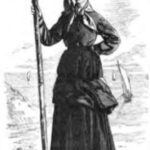In the modern age, trade flows were often separated from political issues. At such a delicate time as 1630, the city of Valencia was in great trouble due to a shortage of wheat and rising prices. Amparo Felipo Orts states that this situation, which in reality responded to a European situation, had been occurring since 1628. Outbreaks of plague prevented supplies from Catalonia or France, so urgent decisions had to be taken. At that time, the Catholic Monarchy was at war with the Low Countries and England, so apparently the trade routes had broken down. The city’s need led Philip IV to agree to Dutch ships supplying the city of Valencia with wheat, despite the fact that legislation forbade trade with enemies. From a historical perspective, the supply of fish, so important for the Catholic rite, had not been interrupted since the time of Philip II with England, nor had trade with France. This makes it necessary to consider trade issues not necessarily linked to the political situation.
Collection: Texts
Chronology: XVII
Scope: Secondary Education, Baccalaureate, University
Link: http://rua.ua.es/dspace/handle/10045/4618
Resource type: Historical source
Source: AMV. Cartas Reales, h3-8, fol. 244v.
Language: Spanish
Date: 15/12/1630
Owner: Djebril Bouzidi (Modernalia)
Identifier: AMV. Cartas Reales, h3-8, fol. 244v.
Abstract: Permission from Philip IV in 1630 for Dutch ships to supply wheat to the city of Valencia because of the needs it was experiencing
Tags





